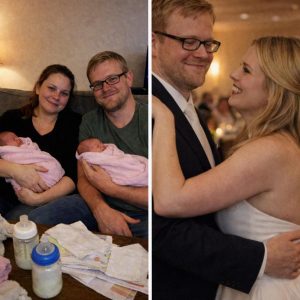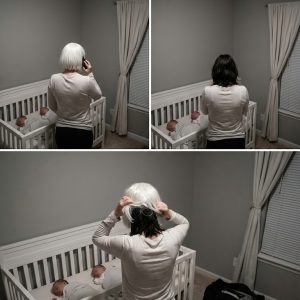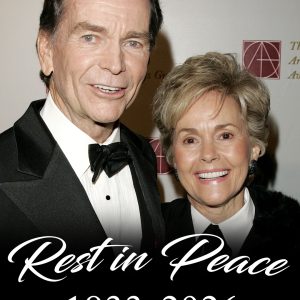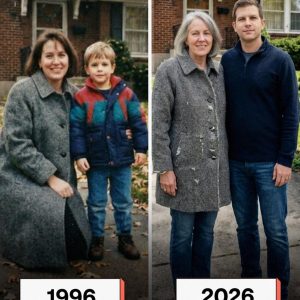Losing a parent is often described as the most painful experience a person can endure, and when my mother passed away, I believed I was bracing myself for the hardest challenge of my life. I spent weeks mentally preparing for grief, for the quiet moments of reflection, and for the inevitable loneliness that comes with such a loss. Yet, nothing could have prepared me for the shock and heartbreak that followed the reading of her will. The attorney’s voice was cold and detached as he stated plainly that all monetary assets and property were to be transferred to my eldest sister, Clarissa. There was no explanation, no mention of me, and no acknowledgment of the years I had spent caring for our mother during her illness. The sting of exclusion cut deeper than the pain of her death itself, leaving me stunned and numb in the sterile confines of the lawyer’s office. Clarissa, ever the self-assured favorite, smirked as if the outcome were her due reward, while I felt erased, invisible, and profoundly overlooked despite my unwavering devotion.
Throughout our mother’s illness, I had been the one present in the quiet, difficult moments that no one else wanted to endure. I had sat by her hospital bed every weekend, prepared her meals when chemo left her weak and nauseous, and managed the complicated paperwork and insurance claims that came with her treatment. I had borne the emotional and physical labor of caring for her when Clarissa’s visits were sporadic and self-serving. This work, which I had undertaken with love and commitment, seemed to mean nothing in the eyes of formal inheritance. The experience was a bitter lesson in how outward appearances of devotion can overshadow the invisible labor of true care. Walking out of the attorney’s office, I sought air and solitude, trying to process the dual grief of my mother’s passing and the painful realization that my efforts had been disregarded in the legal sense.
But then, in the hallway outside the office, a figure from my mother’s life approached with an unexpected gesture of kindness. Dr. Amir, her long-time physician, called my name and handed me a small, sealed envelope marked with my name in my mother’s familiar cursive handwriting. He explained that my mother had entrusted it to him weeks before she passed, explicitly instructing that it was for me alone. Trembling, I opened the envelope to find a letter and a small key taped to the back. The first line of the letter immediately moved me to tears: my mother expressed that while Clarissa had received what she wanted, I had received what truly mattered—her love. The letter revealed that my mother had anticipated Clarissa’s manipulations in her final weeks and had chosen to acquiesce to her demands in order to preserve peace, not out of favoritism. In this small but significant act, my mother had ensured that I would receive a private, heartfelt acknowledgment of my devotion.
The key led me to a safety deposit box at a local credit union, where I discovered a carefully curated collection of my mother’s most cherished possessions. Nestled inside a velvet pouch were her wedding ring, a locket containing a photograph of the two of us from my childhood, and a handwritten journal filled with personal memories, recipes, and reflections on my life milestones. Each item told a story of our bond, our shared experiences, and the love she had for me—often quietly, away from the eyes of others. At the bottom of the box, I found a cashier’s check for $75,000 accompanied by a note reassuring me that I would use it wisely. While the money was generous, the true gift was intangible: the evidence of my mother’s enduring love, her trust, and her recognition of my dedication during her final months. It was a profound reminder that value is not measured solely in monetary terms but in the depth of human connection and the preservation of family legacy through memory and affection.
In the aftermath of this revelation, the contrast between what Clarissa inherited and what I received could not have been starker. Clarissa had the house, the bank accounts, and the visible symbols of material wealth. I, however, was left with something far richer: the reassurance that my mother had remembered me, understood my devotion, and ensured that I was cared for in her own thoughtful, discreet way. Her careful planning demonstrated that while legal documents and financial statements can assign value in the eyes of society, love and recognition carry a deeper, lasting significance. The letter, the journal, and the heirlooms represented a personal affirmation of my relationship with her, validating years of emotional labor and the quiet sacrifices that had gone unnoticed by others. In that moment, I realized that inheritance is not solely about wealth—it is about acknowledgment, trust, and the enduring power of familial love.
Ultimately, this experience reshaped my understanding of loss, family, and value. While the reading of my mother’s will initially filled me with despair and anger, her secret message reminded me that I had not been forgotten and that her love had always been present, even when unseen by others. The memory of her words, her handwritten notes, and the carefully chosen items in the deposit box became a source of solace and empowerment, reinforcing the importance of presence, care, and the quiet acts of devotion that define genuine relationships. Clarissa may have received the public symbols of inheritance, but I inherited my mother’s truth, her heart, and her unwavering love—gifts that no fortune could ever surpass. In the end, I understood that the most meaningful legacies are not always written in legal terms; they are etched in memory, trust, and the quiet acknowledgment of a love that endures beyond death.




